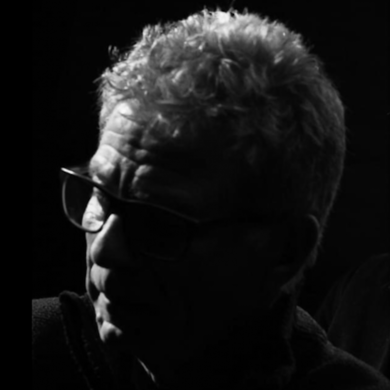In Terry Flaxton’s Carnival, a fairground ride trundles slowly past, transported on wheels. It glides smoothly along a road before coming to a standstill. On its journey the fairground ride is accompanied by people in hi vis vests and clown outfits; it isn’t certain whether their movements are choreographed.
For Carnival, Flaxton merges together ancient and contemporary rituals, media and descriptive techniques. An Ancient fire festival sustains itself from Celtic times into the electronic age by morphing into a modern gesture that recognizes how popular culture affects us all. There is no difference between Disney and Beowulf, the Assyrian Tales and Aardman, Pixar and the Mahabharata – except when the need for profit overcomes the need to sustain - and holes then develop at the centers of the stolen tales.
Ancient folk traditions from the old countries matter. They reach out through their power and penetrate popular consciousness and whisper their old truths no matter what else is being spoken. Iconographic images are taken and renewed through repeats of their most prosaic forms, outlines and stereotypes. These renewals are not quite copies; they are infused with the deeper darker ever-present truths of people-kind.
The soundtrack to Carnival is a homage and a nod towards two of the most pertinent English musicians of our time.



